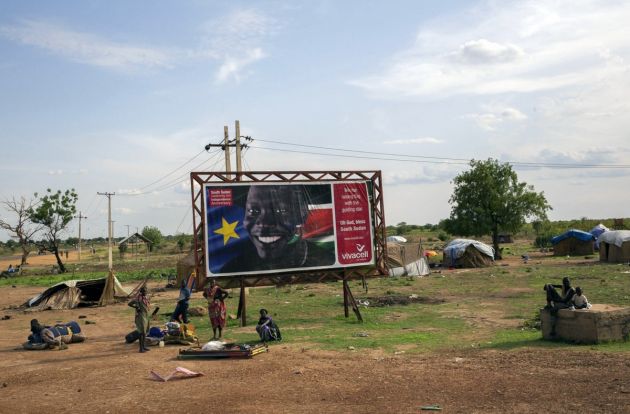UN rights chief warns of S. Sudan genocide danger; church heads to mediate

U.N. High Commissioner for Human Rights Navi Pillay said Friday a detailed new report describes gross violations of human rights in South Sudan that she warned can be precursors to genocide.
The U.N. report documents atrocities "on a massive scale," including possible war crimes and crimes against humanity and "underscores the extreme urgency of bringing the conflict to an end," she said.
Pillay's revelation of the report came as peace talks between the warring parties, at which church leaders will play a mediating role, were to begin Saturday in the Ethiopian capital Addis Ababa.
The World Council of Churches said Friday that church leaders from South Sudan had converged on Addis Ababa for negotiations between South Sudan's president Salva Kiir and rebel leader Riek Machar.
The negotiations aim to find solutions for the world's newest nation, reeling from violence since last year that has left thousands dead and millions homeless.
Among the church leaders are: Archbishop Paulino Lukudu Loro of the Roman Catholic Archdiocese of Juba, Archbishop Daniel Deng Bul Yak of the Episcopal Church of Sudan and Peter Gai Lual Marrow of the Presbyterian Church of South Sudan.
The church leaders are accompanied by Rev. Samuel Kobia, former general secretary of the WCC and ecumenical special envoy for South Sudan and Sudan.
Rev. Olav Fykse Tveit, general secretary of the WCC, who was in Juba last week meeting with representatives of local churches said, "Churches in South Sudan have a significant role in national dialogue, affirming unity and a sense of nation-building by strengthening a process of reconciliation."
Pillay for her part warned of the gravity of the situation after visiting South Sudan two weeks ago said the U.N. report details accounts of "ethnic-based mass killings and revenge attacks, including direct and deliberate murder of civilians, and a litany of other serious violations."
She said, "This report, based on interviews with more than 900 victims, witnesses and others, illustrates just how quickly a political struggle within the ruling party was allowed – or even encouraged – to metamorphose into an ethnic-based conflict of the most lethal sort."
The report revealed structural weaknesses and leadership flaws that have undermined democracy and the rule of law in the world's youngest nation.
"As former President of the International Criminal Tribunal for Rwanda, I recognize in this account many of the precursors of genocide: hate media including calls to rape women of a particular ethnic group; attacks on civilians in hospitals, churches and mosques; even attacks on people sheltering in UN compounds – all on the basis of the victims' ethnicity."